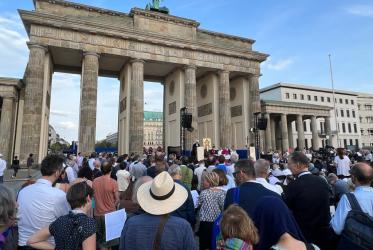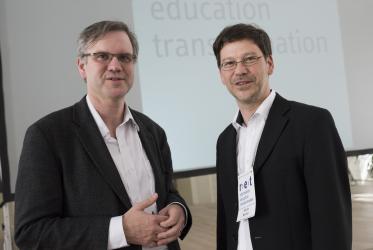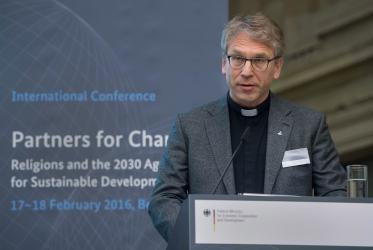Displaying 1 - 20 of 24
"A world free from nuclear weapons is possible"
11 September 2023
WCC well-represented in Religions for Peace leadership
07 October 2019
Religions for Peace assembly convenes in Lindau
19 August 2019
A moment in ‘Time’: an interreligious vision in Erlangen
20 December 2018
G20 summit: call to pray for peace in Hamburg
07 July 2017
WCC/UN conference calls for coordinated action on refugee crisis
20 January 2016
WCC urges responsibility for and support to the refugees in Europe
04 September 2015
Panel revisits Dietrich Bonhoeffer’s ecumenical legacy
05 March 2015














